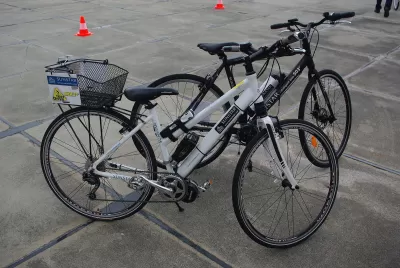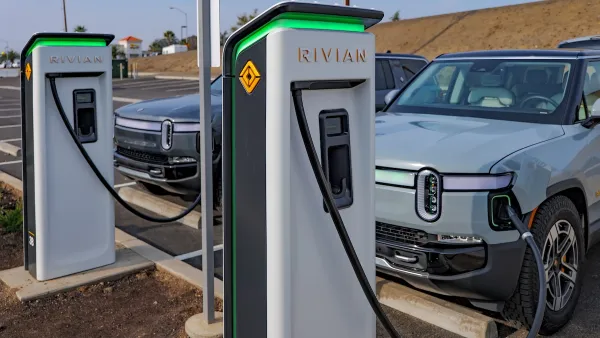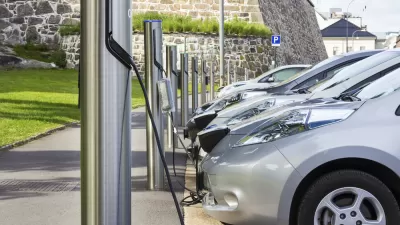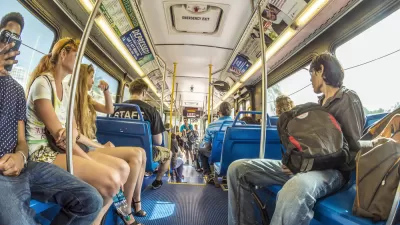The singular focus on EVs is making U.S. cities miss out on the opportunity to promote e-bikes as a more efficient and sustainable transportation mode.

Despite prominent calls to electrify cars and buses, U.S. policymakers have largely failed to encourage an even more sustainable, affordable, and effective electric transport mode: e-bikes. Lloyd Alter writes that, according to a survey from the United States Conference of Mayors, "55% [of mayors surveyed] believed 'all-electric vehicles' were the most promising technology from a list of 20 options presented to them," yet the survey results made no mention of electric bikes.
Meanwhile, cities are planning for new EV infrastructure such as charging stations, which critics argue will not mitigate traffic and congestion problems in crowded urban areas or provide better options for rural and suburban dwellers with less access to public transit. And while electric vehicles are expensive to own and maintain, even a small subsidy for electric bikes could put them within reach of most Americans. E-bikes also create less 'embodied carbon,' the greenhouse gases emitted during manufacturing, and put less stress on local power grids.\
According to Alter, "the almost single-minded focus on e-cars seems so misguided when a faster and fairer approach would be to try to reduce the number of cars and make space for the safe and secure use of bikes and e-bikes."
FULL STORY: Politicians and Planners Are Missing the E-Bike Revolution

Planetizen Federal Action Tracker
A weekly monitor of how Trump’s orders and actions are impacting planners and planning in America.

Maui's Vacation Rental Debate Turns Ugly
Verbal attacks, misinformation campaigns and fistfights plague a high-stakes debate to convert thousands of vacation rentals into long-term housing.

San Francisco Suspends Traffic Calming Amidst Record Deaths
Citing “a challenging fiscal landscape,” the city will cease the program on the heels of 42 traffic deaths, including 24 pedestrians.

Defunct Pittsburgh Power Plant to Become Residential Tower
A decommissioned steam heat plant will be redeveloped into almost 100 affordable housing units.

Trump Prompts Restructuring of Transportation Research Board in “Unprecedented Overreach”
The TRB has eliminated more than half of its committees including those focused on climate, equity, and cities.

Amtrak Rolls Out New Orleans to Alabama “Mardi Gras” Train
The new service will operate morning and evening departures between Mobile and New Orleans.
Urban Design for Planners 1: Software Tools
This six-course series explores essential urban design concepts using open source software and equips planners with the tools they need to participate fully in the urban design process.
Planning for Universal Design
Learn the tools for implementing Universal Design in planning regulations.
Heyer Gruel & Associates PA
JM Goldson LLC
Custer County Colorado
City of Camden Redevelopment Agency
City of Astoria
Transportation Research & Education Center (TREC) at Portland State University
Jefferson Parish Government
Camden Redevelopment Agency
City of Claremont





























